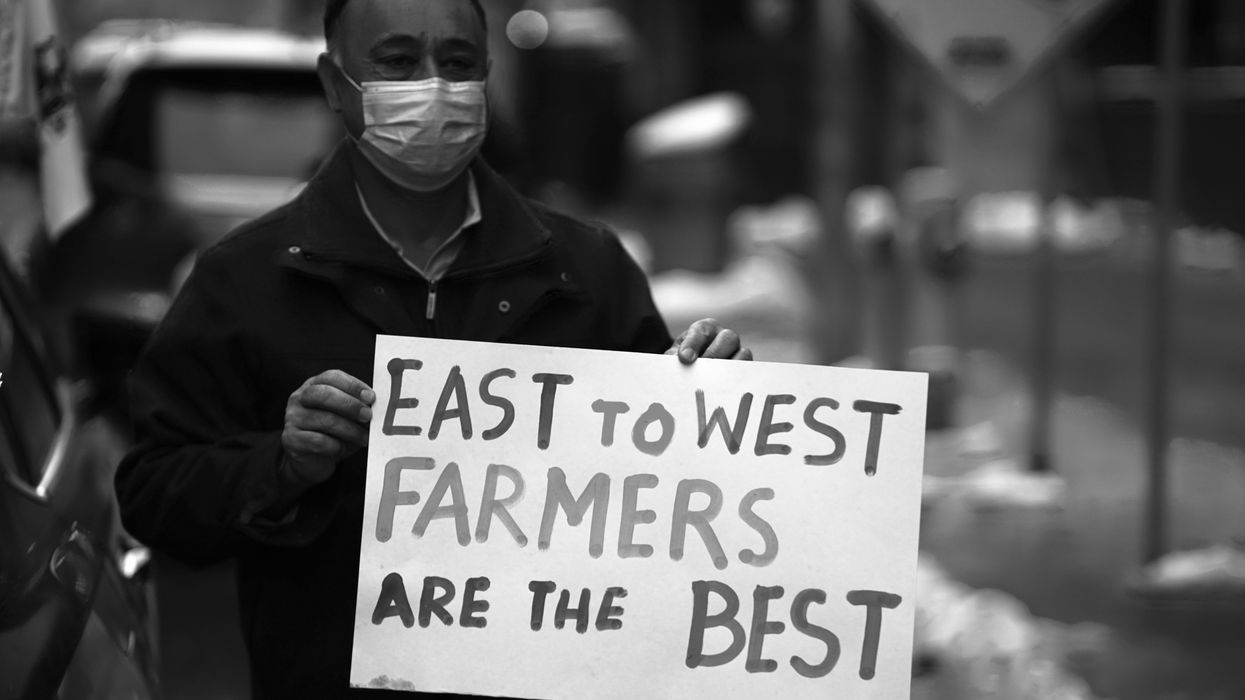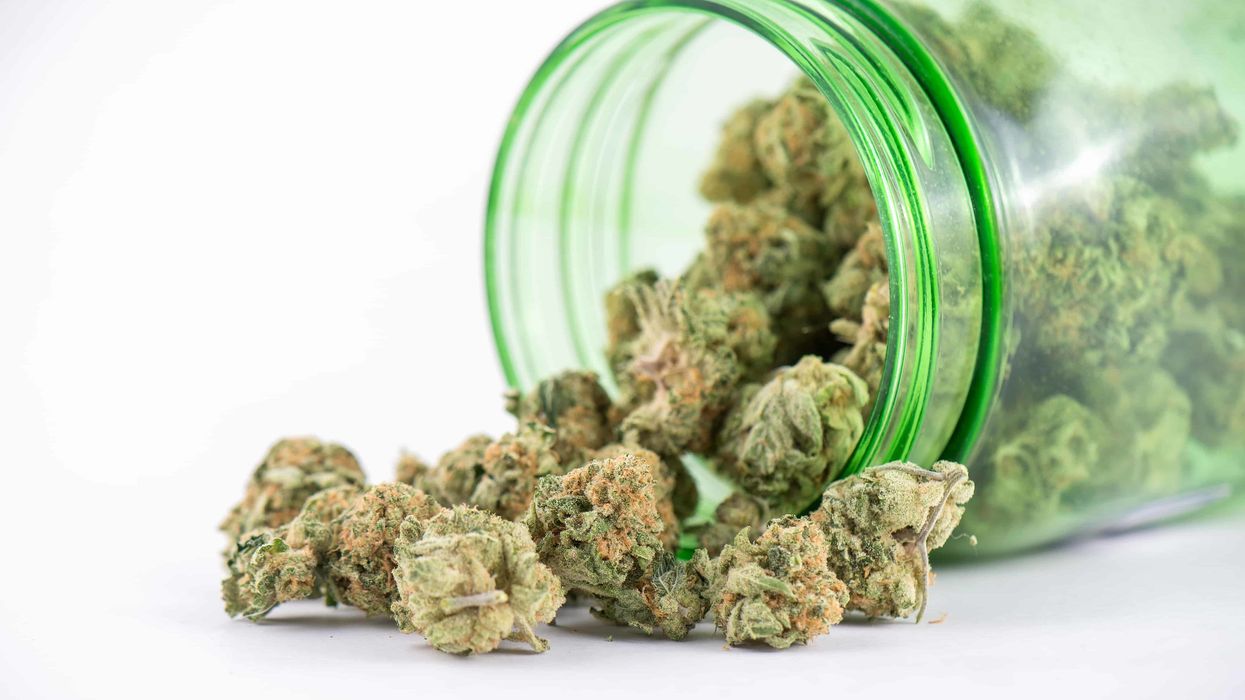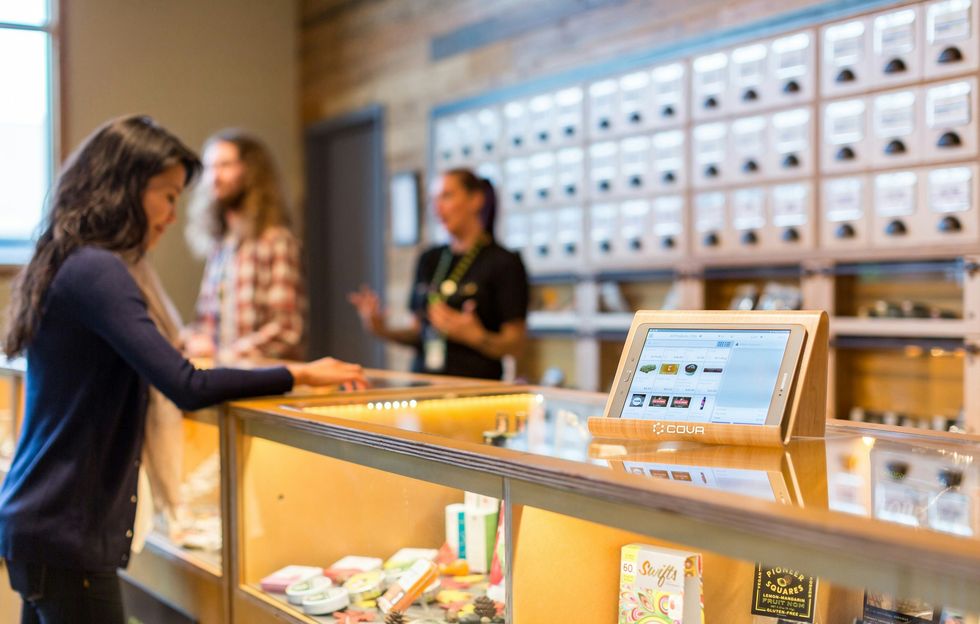The Cannabis Farmers Alliance (CFA), along with several social equity groups from across the State, voiced their collective call for action this week on the steps of the New York State Assembly and Senate to challenge proposed legislation by Senator Jeremy Cooney.
According to the collective, the legislation, if passed, would allow Multi-State Medical Operators or RO’s to enter the adult recreational cannabis market three years ahead of schedule by paying a $20 million entry fee. The CFA and its allies argue that this move undermines the social equity goals set forth by The Marijuana Regulation and Taxation Act (MRTA) and would give powerful operators control over the industry.
Specifically, they argue that without clear guidelines and adequate funding for the initial beneficiaries of the MRTA, lobbyists and special interests could quickly come to dominate the industry with mass-produced, low-quality products and environmentally damaging operations. This outcome would marginalize already distressed farmers, minorities, women, veterans, disabled individuals, and legacy cannabis operators, undermining the core intentions of the legislation.
Urgency for a Level Playing Field
Nicole Ricci, President of NY Small Farma, highlighted the urgent need for substantial support for New York's social and economic equity adult-use cannabis program. She emphasized the importance of adequate funding and leveling the playing field to prevent dominant players from overshadowing legacy growers. Without these measures, the cannabis industry in New York risks perpetuating economic disparities and exacerbating poverty in already struggling rural and urban communities.
Mika’il DeVeaux, Ph.D., Chairman, Cannabis Social Equity Coalition – NYS, passionately declared, “The future of social equity in this country hangs in the balance. If social equity fails in New York, it will never see the light of day at the federal level.”
Concerns Over Equity
The promise of social and economic equity made by the Governor is now faltering unnecessarily. The state asked farmers to produce quality cannabis, and they delivered, yielding nearly 300,000 lbs.
Additionally, promises were made to CUARD licensees to support them and open 50 dispensaries by now.
“Instead of allowing farmers and CUARDs to succeed, Senator Cooney's CAUTA bill, driven by significant lobbying funding, aims to allow highly-capitalized “Wall Street-funded” Medical Cannabis Companies to enter the industry three years early,” stated Joseph Calderone, co-Founder of Cannabis Farmers Alliance and COO of woman-owned Grateful Valley Farm.
Calderone went on to reference the collapse of the cannabis industry in other states due to similar practices to demonstrate how this is a detrimental idea. He said that the multi-state operators, managed by forces misaligned with the original intent of the MRTA, seek to bypass small farmers and minorities. And, that this was far from socially equitable.
He said, "New Yorkers, like most Americans, want to consume safe, quality cannabis sourced from small, sustainable, independent craft cultivators, just as they prefer their vegetables, wine, and beer."
The Role of Farmers and the Risk of Collapse
According to Calderone, farmers are the only operators with legal adult-use cannabis in New York. Not the medical operators. Not the 1,500 illegal sticker stores. “If we collapse, which is nearly a certainty for many farmers, large indoor operators will not have enough product to fill the shelves. And what quality will the irradiated and indoor cannabis be?,” he said.
Allowing Senator Cooney's bill to pass is believed to be disastrous for the industry and the social equity program resulting in the loss of millions of dollars, jobs, foreclosed homes, and devastate rural economies already facing challenging times.
The Coalition's Proposed Solutions
The coalition, composed of several distressed New York cannabis farmers and minority groups, proposed several solutions to protect social equity in the industry. They advocated for a "Retail Subsidy" for CUARDs and a "Biomass Subsidy" for farmers.
Additionally, they urge the Governor's office to allocate more funding specifically for cannabis social equity objectives, ensuring that the resources needed to empower marginalized stakeholders are readily available.
The group did commend the Office of Cannabis Management for their recent decision to allow farmers to sell cannabis products at farmer's markets. This proposal would enable CUARDs to participate in the industry while they establish their retail locations and build relationships with farmers.
To ensure their success, the group urged the Governor and Legislature to allocate a "Retail Subsidy" that covers the difference between the wholesale and retail prices, directly benefiting CUARD’s by providing essential support without encroaching on social equity funds designated exclusively for them.
According to the group, a "Retail Subsidy," could foster economic cooperation, strengthen the market, and fulfill the Governor's objectives for social equity.
The proposed "Biomass Subsidy" would seek to address the issue of untested biomass sitting on farms. It’s a crucial and fair solution for distressed AUCC farmers who have invested significant resources into producing biomass. The Biomass Subsidy could take one of several forms according to Cannabis Farmers Alliance:
- A one-time cash payment with a set "fair value price of up to $500.00 per pound of biomass to farmers.
- A 20/80 split: After lab testing and a sample test run, the AUCC receives 20% of the value of oils extracted from the biomass, while the remaining 80% is either released to the AUCC or shared with the processor. The AUCC retains the right to be present during test runs.
- 100% custody: The AUCC receives 100% of the extracted oils and the state subsidizes the testing, tolling, and overhead costs associated with the extraction process.
- Subsidy based on existing production: The state offers a subsidy based on the product/biomass already produced by AUCC distressed farmers. This subsidy can be utilized to support processing or help farmers build infrastructure for the current or next year's crop.
Implementing the Biomass Subsidy will not only provide relief to distressed farmers but also ensure that valuable resources are not wasted.
The Cannabis Farmers Alliance and its supporters believe that by supporting these measures, legislators can ensure that New York State’s cannabis industry thrives while upholding the principles of social and economic equity set forth in the MRTA fulfilling the aspirations of a socially equitable future.
The event was attended by notable representatives from various organizations including:
• Mika’il DeVeaux, Ph.D., Chairman, Cannabis Social Equity Coalition - NYS
• Joe Calderone, Acting President, Cannabis Farmers Alliance (CFA)
• Nicole Ricci, President of NY Small Farma
• Jeffrey Medford, Founder, NY Green Coalition
• Reginald Fluellen, Ph.D. Senior Consultant, Cannabis Social Equity Coalition – NYS
• Musa Zwana, Co-Founder of Black Cannabis Industry Association

















 How to Become a Budtender: Complete Career Guide & Salary Information - The Bluntness Photo by
How to Become a Budtender: Complete Career Guide & Salary Information - The Bluntness Photo by  How to Become a Budtender: Complete Career Guide & Salary Information - The Bluntness Photo by
How to Become a Budtender: Complete Career Guide & Salary Information - The Bluntness Photo by